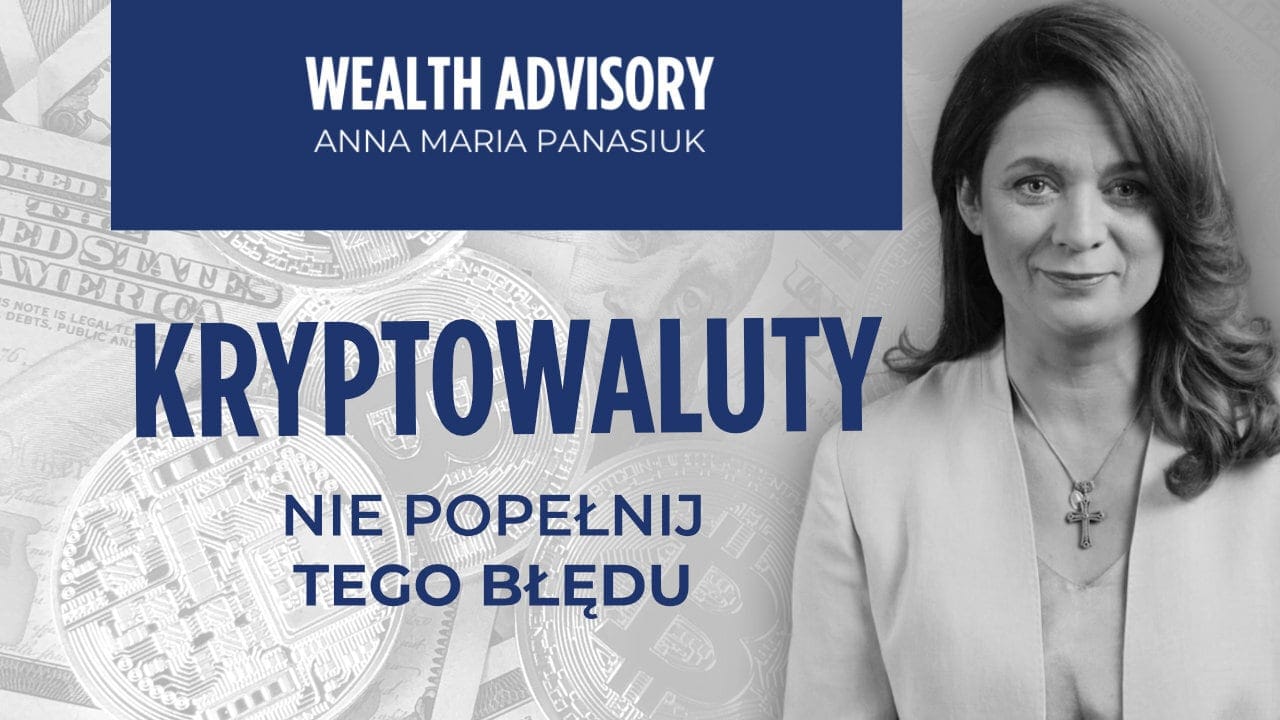Right now, worldwide, the meaning of blockchain, i.e., DLT, is getting through to us. It seems that the sceptics will soon have to abandon their arguments if they do not want to wake up with the proverbial short end… Many aspects of cryptocurrencies still need to be regulated, which can currently be the subject of tremendous abuse. However, this does not change the fact that this is an inevitable direction and although I personally choose analogue life, I definitely want to follow the opportunities offered by the market in my professional life. But why?
To answer that question, I can think of an example like banks. These long ago accepted the fact of transition from the analogue era, i.e., paper documents, to the era of electronic ones. However, there will still be exceptions that stand by analogue work. Let us take, for example, a needle printer that prints transaction confirmation to customers in July 2022 and just an hour’s drive south of Warsaw! Yes, it is up to each of us to decide whether we drift with the wind or try to swim upstream. Below is a brief summary of the facts and a description of those countries that have set themselves the goal of meeting the expectations of the market and assuming a new role of crypto-hubs in the changing reality. And it is not about countries like El Salvador, which adopted Bitcoin as a legal tender this year. We are talking about the centres of global financial institutions, i.e., Switzerland and the UK, as well as Portugal, which has also grown an appetite for taking advantage of the new opportunities that have arisen there, more on account of the climate and the NHR tax regime than for other reasons. But first things first.
Why is Switzerland vying for cryptocurrency investors?
Switzerland has been known for its safekeeping of assets for centuries, and in August 2021 it became one of the first countries in the world to enact legal regulations regarding the blockchain technology. Swiss lawyers and regulators have been actively working on a legal framework to establish the country as a centre of cryptocurrencies. This creates legal certainty and enables innovation and growth.
For Switzerland, the integrity of the financial centre is of vital importance. It attaches importance to applying the same rules to cryptocurrencies as to real monetary assets, e.g., in the field of counteracting money laundering.
In most cases, private investors do not pay capital gains tax, with only companies and self-employed individuals paying this tax but only when they conduct active trading operations and not just private holding of assets.
In Switzerland, cryptocurrencies still do not qualify as a legal tender. Consequently, they are not considered to be “money” in the narrow sense, but the Swiss central bank recognises the potential use of digital tokens and will continue to closely monitor relevant market and technical developments.
Already in 2021, the central bank of Switzerland along with the Bank of France announced the possibility of using the digital form of the currency for interbank settlements. And starting from 2021, the tax authorities of the ZUG canton accept payment of taxes in the form of Bitcoin or Ether! This is the first canton in Switzerland to implement such a law.
Smart contracts in Switzerland
The future of smart contracts is much talked about. They are supposed to render lawyers obsolete… And here we are – in 2021, changes were introduced to civil law in Switzerland! (Swiss Law of Obligation). Innovative regulations provided for a special type of transferable securities, the so-called DLT Securities, operated by distributed ledger technology (DLT). This in turn allows for the tokenisation of rights, claims and financial instruments in the form of bonds, shares or other derivatives. This tokenisation consists in the electronic registration of encrypted data-rights, while ensuring their full protection, as well as the freedom to issue and transfer them.
The underlying instruments eligible under DLT Securities include, for example, debt instruments, certain corporate rights (e.g., related to membership/shares in a company), but also structured products or contractual claims arising, for example, from bonds. In other words, tokenised assets and a certain group of utility tokens or stablecoins – pursuant to Swiss legislation – may be issued as DLT securities. On the other hand, cryptocurrencies such as e.g., bitcoins may not, because they do not constitute grounds for formulating claims against their issuer, and thus – they do not have an acceptable underlying instrument[1].
In order to issue/create a DLT security, it is necessary to conclude a registration agreement on the basis of which a given right will be entered in a special register of non-authenticated securities through which its claims and implementation will be conducted. The minimum technical requirements for such a register are specified in legislation. For example, the register must grant actual clearing authority over relevant rights only to creditors and not to debtors. Furthermore, it is necessary to apply technical and organisational protection measures to ensure the integrity of the register. In practice, it is the responsibility of the issuer of DLT securities to implement and maintain the safeguard measures mentioned above and to ensure proper functioning of the register.
The UK – at the right time in the right place, much as usual
This year, the UK also joined countries wishing to take advantage of current trends. Here, too, we can notice that it is taking many measures to build its international position as a cryptohub.
The government aims to make the UK an attractive place to operate for cryptocurrency investors. For this purpose, there are plans to introduce new regulations on stablecoins (cryptocurrencies whose value is to be stabilized by underlying assets, e.g., fiat currencies or commodities), which are to become a recognised form of payment. These transactions will be recorded and publicly visible, and this proves the planned transparency on the cryptocurrency market.
Royal Mint has decided to take up the challenge posed by the NFT market (in 2021, the value of issued NFT exceeded $25 billion). This is merely an example of how NFT can be perceived as a legal value medium.
Nevertheless, it is the liberalisation of the Investment Manager Exemption (IME) principles that seems to be the most promising. These permit the management of crypto portfolios of foreign funds, i.e., the capital of foreign investors in the UK, simultaneously granting exemption from taxation in the UK. Their purpose is to ensure that a commercial transaction concluded on behalf of a non-UK resident fund benefits from tax neutrality in the UK. Such a regulation is of great importance internationally, placing the UK as a centre concentrating crypto market investment transactions in a natural way.
It is also worth mentioning that the HMRC (Her Majesty’s Revenue & Customs) has very precisely defined the taxation methods for the income obtained from the cryptocurrency trade, referring in great detail to each type of such income. Let us take DeFI as an example.
DeFI is a platform which allows you to open accounts in order to store, exchange and transfer cryptocurrencies to individuals or companies. It is a decentralised form of all financial services, a financial system built using the Blockchain technology. In DeFi, it is the code in a smart contract (a self-service digital contract allowing one to reduce the cost of commissions) that is responsible for security. DeFi is a solution which transfers our financial systems into a decentralised blockchain and enables them to function through smart contracts.
So far, the matters related to the income generated from loans or the storage of tokens using the DeFi platform have not been settled. Currently, we must expect an obligation binding us to pay tax on income earned from trading cryptocurrencies, even while using decentralised financial services, and all rules are very precisely defined in special manuals published by HMRC.
This looks different in many countries where the taxation of cryptocurrencies is rather
based on the interpretation of tax authorities than on specific regulations – which is still rather rare. Even though Poland has implemented such regulations, they are rather quite laconic and simple, which might be an advantage.
How did Portugal become a forerunner in the cryptocurrency market?
Portugal responds very dynamically to changing conditions. This country is a mecca for investors staking their future on cryptocurrencies. The Portuguese Government, in response to a constantly changing market, is intensively and continuously working on new regulations regarding cryptocurrencies. One of the breakthrough solutions is the adoption of a regulation pursuant to which it is possible to conclude real estate transactions payable 100% in cryptocurrency. Until now, such transactions had to be denominated in euro, while bitcoin payments were subject to separate arrangements between the parties. The new legal regulations envisage the possibility of settling this type of transaction directly in a cryptocurrency; the first such transaction took place already in May this year (2022), in Braga, north of Porto, and resulted in the purchase of an apartment for the price of 3 bitcoins. It is an absolute breakthrough that sets new business directions not only for Portugal, but also for the entire Europe.
This is, however, just the beginning of revolutionary changes. Currently, work is underway on the regulation of the cryptocurrency taxation matter.
The Portuguese Government is unanimously in favour of the taxation of cryptocurrencies at the European level. The introduction of a uniform tax throughout the European Union would increase the tax revenues of the Portuguese state budget, while maintaining the inflow of money and increasing investment trends in the cryptocurrency market, which are currently taking place in Portugal.
However, the future of legislative changes in this area is not yet determined. The proposal subjected to voting by the Parliament in May was rejected.
The potential direction of changes in taxation is more inclined to adopt a minimum tax based on the German model, where the sale of assets (crypto) held over one year is exempt from taxation or on the Polish model, where the exchange of crypto into crypto is tax free.
However, these solutions are contested by the left-wing party, which strongly insists on the taxation of all crypto transactions.
If we fail to introduce this regulation in the summer, we should not expect any such decisions to be made until the end of the year.
What is the EU’s stance on cryptocurrencies?
Let us have a look at the 2020 EU Council Regulation. The Council acknowledges that issuers of crypto assets and digital asset service providers cannot fully benefit from the internal market, both due to the lack of legal certainty as to how crypto assets are treated in the light of regulations and the lack of a specific and coherent regulatory and supervisory system at the EU level. The European Union, therefore, not only recognises the legitimate need for proper legal solutions, but also explicitly legalises the issuers’ market by indicating the conditions under which such activities are legal.
The Regulation further states as follows: By introducing a common EU framework it will be possible to establish uniform operating conditions for companies in the EU which will allow for eliminating differences in national regulations that lead to market fragmentation and reducing the complexity and expenses incurred by companies operating in this area. At the same time, they will provide companies with full access to the internal market and the legal support necessary to promote innovation on the cryptocurrency market. Leaving all this new talk aside, one thing is certain: the EU will not allow this market to be governed by its own laws. It is a matter of time before it is fully regulated, which is to say – supervised.
At the moment, the crypto market is going through a significant correction. We get questions and we encounter many people saying this is not the end, but it is certainly the expected correction shift, and the market will bounce back very quickly. The only question is how quickly individual countries will establish proper mechanisms and who will eventually win the race, becoming the leader on this market, and attracting the biggest players. In the long term, however, this is our future, and we should be getting used to it now.
[1]https://www.globallegalinsights.com/practice-areas/blockchain-laws-and-regulations/switzerland



